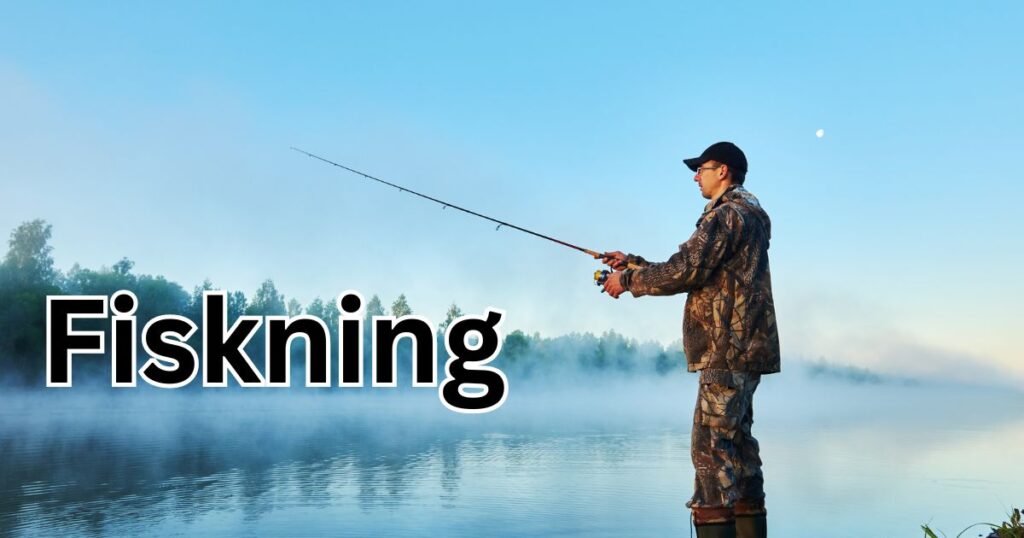Introduction to Fiskning
Fiskning, or fishing, is more than just a hobby; it’s a way to connect with nature, unwind, and enjoy the thrill of the catch. Fiskning refers to the practice of catching fish for food, sport, or recreation. It can be done in various environments, including rivers, lakes, and oceans. The activity encompasses a wide range of techniques and styles, making it accessible to people of all ages and skill levels.
Fiskning can be a peaceful escape from daily life, offering a chance to relax and enjoy the beauty of nature. It also provides an opportunity to learn new skills, bond with friends and family, and even contribute to conservation efforts.
A Brief History of Fiskning
The history of fiskning dates back thousands of years, with evidence of fishing practices found in ancient cultures around the world. Early humans relied on fishing as a primary source of food, using simple tools like spears and nets.
As societies evolved, so did fishing techniques and equipment. The development of fishing rods, reels, and various bait types transformed fishing into a popular recreational activity. Today, fiskning is not only a means of sustenance but also a beloved pastime enjoyed by millions globally.
Types of Fiskning
Fiskning can be categorized into several types, each offering unique experiences and challenges. Here are some of the most common types:
Freshwater Fishing
Freshwater fishing takes place in rivers, lakes, and ponds. Anglers target species such as bass, trout, and catfish. This type of fishing is popular due to its accessibility and the variety of fishing spots available.
Saltwater Fishing
Saltwater fishing occurs in oceans and seas, targeting species like tuna, marlin, and snapper. This type of fishing often requires specialized gear and techniques due to the larger size and strength of saltwater fish.
Fly Fishing
Fly fishing is a specialized technique that uses a lightweight lure called a fly. Anglers cast the fly using a flexible rod and line, often in freshwater streams and rivers. This method requires skill and practice but can be incredibly rewarding.
Ice Fishing
Ice fishing involves fishing through holes cut in frozen lakes or rivers. Anglers use specialized equipment and techniques to catch fish during the winter months. This unique form of fishing allows enthusiasts to enjoy the sport even in cold weather.
Essential Fishing Gear
Having the right gear is crucial for a successful fishing experience. Here are some essential items every angler should consider:
- Fishing Rod and Reel: The primary tools for casting and retrieving fish. Choose a rod and reel combo suitable for the type of fishing you plan to do.
- Fishing Line: Select a line that matches your rod and the species you are targeting. Common types include monofilament, fluorocarbon, and braided lines.
- Hooks and Bait: Hooks come in various sizes and styles, while bait can be live, artificial, or natural. Research the best options for your target species.
- Tackle Box: A tackle box helps organize your gear, including lures, hooks, and other accessories.
- Safety Equipment: Always prioritize safety by wearing a life jacket, using sunscreen, and having a first aid kit on hand.
Techniques for Successful Fiskning
Mastering various fishing techniques can significantly enhance your success on the water. Here are some essential techniques to consider:
- Casting: Practice your casting technique to improve accuracy and distance. Different fishing styles may require specific casting methods.
- Retrieving: Learn how to retrieve your line effectively, using techniques like steady reeling, jerking, or twitching to mimic the movement of prey.
- Reading the Water: Understanding the water’s structure, such as currents, depths, and vegetation, can help you identify the best fishing spots.
- Patience: Fishing often requires patience. Spend time observing your surroundings and waiting for the right moment to strike.
The Benefits of Fiskning
Fiskning offers numerous benefits, making it a popular activity for people of all ages. Some of the key advantages include:
- Stress Relief: Spending time outdoors and engaging in fishing can reduce stress and promote relaxation.
- Physical Activity: Fishing often involves walking, casting, and reeling, providing a moderate form of exercise.
- Connection with Nature: Fiskning allows individuals to immerse themselves in natural surroundings, fostering a deeper appreciation for the environment.
- Social Interaction: Fishing can be a great way to bond with friends and family, creating lasting memories.
- Skill Development: Learning various fishing techniques and improving your skills can be rewarding and fulfilling.
Tips for Beginners
If you’re new to fiskning, here are some helpful tips to get started:
- Research Local Regulations: Familiarize yourself with local fishing regulations, including licensing requirements and catch limits.
- Start Simple: Begin with basic gear and techniques before advancing to more complex methods.
- Join a Community: Connect with local fishing clubs or online forums to learn from experienced anglers and share your experiences.
- Practice Patience: Fishing can be unpredictable, so be prepared for both successes and challenges.
- Enjoy the Experience: Focus on enjoying the process rather than just the outcome. The journey is often more rewarding than the catch.
Conclusion
Fiskning is a rewarding and enjoyable activity that offers a unique connection to nature and the thrill of the catch. Whether you’re fishing for relaxation, sport, or sustenance, understanding the various aspects of this beloved pastime can enhance your experience. Happy fishing!
Also Read: Centerpieces at wedding receptions NYT: Crossword clue
FAQs
What do I need to start fishing?
To start fishing, you’ll need a fishing rod and reel, fishing line, hooks, bait, and a tackle box. Additionally, check local regulations for any required fishing licenses.
How do I choose the right fishing spot?
Look for areas with structure, such as rocks, vegetation, or drop-offs, as these often attract fish. Research local fishing reports or ask experienced anglers for recommendations.
What is the best time to go fishing?
Early morning and late afternoon are often the best times to fish, as fish are more active during these hours. However, this can vary based on the species and local conditions.
Can I fish in any body of water?
Not all bodies of water are suitable for fishing. Always check local regulations and ensure you have the necessary permits for the area you plan to fish.
How do I handle and release fish properly?
To handle fish safely, wet your hands before touching them to avoid damaging their protective slime. Use pliers to remove hooks, and release fish gently back into the water to ensure their survival.












